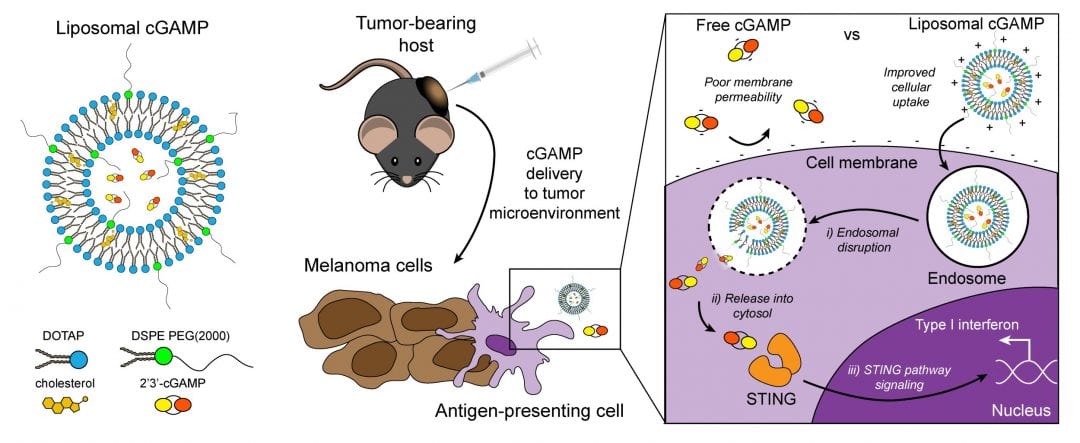Researchers from the Wyss Institute for Biologically Inspired Engineering at Harvard University recently showed that liposomal delivery induces tumor regression and protects previously treated mice from rechallenge with tumor cells. They achieved this with cationic liposomes showing anti-tumor activity against metastatic melanoma in the lung.
Cancer immunotherapy strategies have shown results against a variety of tumor types. However, the majority of treated patients do not experience long-term disease control. STING (stimulator of interferon genes) is a cytosolic adaptor protein that is activated in certain microbial infections, autoimmunity, and cancer. The activation of the STING pathway by delivery of agonists (as cGMP) can increase anti-tumor immune responses. Liposomes (lipid vesicles with an aqueous core) are a class of nanomaterials that have been used for nucleic acid delivery into cells. Liposomes can be used to deliver immunomodulatory agents to immune cells and tumors. They have been used to deliver STING ligands together with vaccines to the lymph nodes.
By combining all these elements, David J. Mooney and co-workers showed that the PEGylated liposomal cGAMP was capable of clearing melanoma tumors. In addition, this complex was capable of inducing resistance to a second challenge with the same tumor cells. These exciting results line up cationic liposomes as a promising delivery strategy for systemic and local STING agonist delivery to tumors.
Featured Image: Schematic of liposomal cGAMP structure and therapeutic strategy.

















